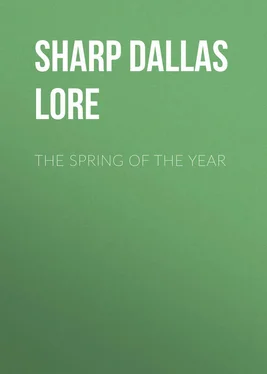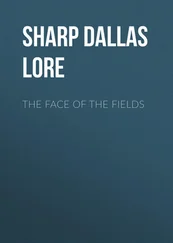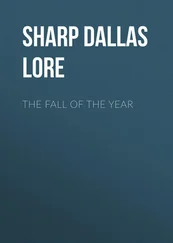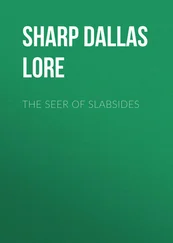Dallas Sharp - The Spring of the Year
Здесь есть возможность читать онлайн «Dallas Sharp - The Spring of the Year» — ознакомительный отрывок электронной книги совершенно бесплатно, а после прочтения отрывка купить полную версию. В некоторых случаях можно слушать аудио, скачать через торрент в формате fb2 и присутствует краткое содержание. Жанр: Природа и животные, foreign_antique, foreign_prose, на английском языке. Описание произведения, (предисловие) а так же отзывы посетителей доступны на портале библиотеки ЛибКат.
- Название:The Spring of the Year
- Автор:
- Жанр:
- Год:неизвестен
- ISBN:нет данных
- Рейтинг книги:4 / 5. Голосов: 1
-
Избранное:Добавить в избранное
- Отзывы:
-
Ваша оценка:
- 80
- 1
- 2
- 3
- 4
- 5
The Spring of the Year: краткое содержание, описание и аннотация
Предлагаем к чтению аннотацию, описание, краткое содержание или предисловие (зависит от того, что написал сам автор книги «The Spring of the Year»). Если вы не нашли необходимую информацию о книге — напишите в комментариях, мы постараемся отыскать её.
The Spring of the Year — читать онлайн ознакомительный отрывок
Ниже представлен текст книги, разбитый по страницам. Система сохранения места последней прочитанной страницы, позволяет с удобством читать онлайн бесплатно книгу «The Spring of the Year», без необходимости каждый раз заново искать на чём Вы остановились. Поставьте закладку, и сможете в любой момент перейти на страницу, на которой закончили чтение.
Интервал:
Закладка:
I should say that there might easily be five hundred young ones in the family, though I never have counted them. But you might. If you want to try it, take your small scoop-net of coarse cheesecloth, or mosquito-netting, and go down to the pond this spring. Close along the margin you will see holes in the shallow water running up under the overhanging grass and roots. The holes were made probably by the muskrats. It is in here that the old catfish is guarding the brood.
As soon as you learn to know the holes, you can cover the entrance with your net, and then by jumping or stamping hard on the ground above the hole, you will drive out the old fish with a flop, the family following in a fine, black cloud. The old fish will swim away, then come slowly back to the scattered swarm, to the little black things that look like small tadpoles, who soon cluster about the parent once more and wiggle away into the deep, dark water of the pond – the strangest family group that I know in all the spring world.
CHAPTER III
AN OLD APPLE TREE
Beyondthe meadow, perhaps half a mile from my window, stands an old apple tree, the last of an ancient line that once marked the boundary between the “upper” and the “lower” pastures. It is a bent, broken, hoary old tree, grizzled with suckers from feet to crown. No one has pruned it for half a century; no one ever gathers its gnarly apples – no one but the cattle who love to lie in its shadow and munch its fruit.
The cows know the tree. One of their winding paths runs under its low-hung branches; and as I frequently travel the cow-paths, I also find my way thither. Yet I do not go for apples, nor just because the cow-path takes me. That old apple tree is hollow, hollow all over, trunk and branches, as hollow as a lodging-house; and I have never known it when it was not “putting up” some wayfaring visitor or some permanent lodger. So I go over, whenever I have a chance, to call upon my friends or pay my respects to the distinguished guests.
This old tree is on the neighboring farm. It does not belong to me, and I am glad; for if it did, then I should have to trim it, and scrape it, and plaster up its holes, and put a burlap petticoat on it, all because of the gruesome gypsy moths that infest my trees. Oh, yes, that would make it bear better apples, but what then would become of its birds and beasts? Everybody ought to have one apple tree that bears birds and beasts – and Baldwin apples, too, of course, if the three sorts of fruit can be made to grow on the same tree. But only the birds and beasts grow well on the untrimmed, unscraped, unplastered, unpetticoated old tree yonder between the pastures. His heart is wide open to every small traveler passing by.
Whenever I look over toward the old tree, I think of the old vine-covered, weather-beaten house in which my grandfather lived, where many a traveler put up over night – to get a plate of grandmother’s buckwheat cakes, I think, and a taste of her keen wit. The old house sat in under a grove of pin oak and pine, – “Underwood” we called it, – a sheltered, sheltering spot; with a peddler’s stall in the barn, a peddler’s place at the table, a peddler’s bed in the herby garret, a boundless, fathomless featherbed, of a piece with the house and the hospitality. There were larger houses and newer, in the neighborhood; but no other house in all the region, not even the tavern, two miles farther down the pike, was half so central, or so homelike, or so full of sweet and juicy gossip. The old apple tree yonder between the woods and the meadow is as central, as hospitable, and, if animals talk with one another, just as full of neighborhood news as was grandfather’s roof-tree.
Of course you would never suspect it, passing by. But then, no lover of wild things passes by – never without first stopping, and especially before an old tree all full of holes. Whenever you see a hole in a tree, in a sand-bank, in a hillside, under a rail-pile – anywhere out of doors, stop!
Stop here beside this decrepit apple tree. No, you will find no sign swinging from the front, no door-plate, no letter-box bearing the name of the family residing here. The birds and beasts do not advertise their houses so. They would hide their houses, they would have you pass by; for most persons are rude in the woods and fields, breaking into the homes of the wood-folk as they never would dream of doing in the case of their human neighbors.
There is no need of being rude anywhere, no need of being an unwelcome visitor even to the shyest and most timid of the little people of the fields. Come over with me – they know me in the old apple tree. It is nearly sundown. The evening is near, with night at its heels, for it is an early March day.
We shall not wait long. The doors will open that we may enter – enter into a home of the fields, and, a little way at least, into a life of the fields, for, as I have said, this old tree has a small dweller of some sort the year round.
On this March day we shall be admitted by my owls. They take possession late in winter and occupy the tree, with some curious fellow tenants, until early summer. I can count upon these small screech owls by February, – the forlorn month, the seasonless, hopeless, lifeless month of the year, but for its owls, its thaws, its lengthening days, its cackling pullets, its possible bluebirds, and its being the year’s end! At least the ancients called February, not December, the year’s end, maintaining, with some sense, that the making of the world was begun in March, that is, with the spring. The owls do not, like the swallows, bring the spring, but they nevertheless help winter with most seemly haste into an early grave.
If, as the dusk comes down, I cannot go over to the tree, I will go to my window and watch. I cannot see him, the grim-beaked baron with his hooked talons, his ghostly wings, his night-seeing eyes, but I know that he has come to his window in the apple-tree turret yonder against the darkening sky, and that he watches with me. I cannot see him swoop downward over the ditches, nor see him quarter the meadow, beating, dangling, dropping between the flattened tussocks; nor can I hear him, as, back on the silent shadows, he slants upward again to his tower. Mine are human eyes, human ears. Even the quick-eared meadow mouse did not hear until the long talons closed and it was too late.
But there have been times when, like some belated traveler, I have been forced to cross this wild night-land of his; and I have felt him pass – so near at times that he has stirred my hair, by the wind – dare I say? – of his mysterious wings. At other times I have heard him. Often on the edge of night I have listened to his quavering, querulous cry from the elm-tops below me by the meadow. But oftener I have watched at the casement here in my castle wall.
Away yonder on the borders of night, dim and gloomy, looms his ancient keep. I wait. Soon on the deepened dusk spread his soft wings, out over the meadow he sails, up over my wooded height, over my moat, to my turret tall, as silent and unseen as the soul of a shadow, except he drift across the face of the full round moon, or with his weird cry cause the dreaming quiet to stir in its sleep and moan.
Now let us go over again to the old tree, this time in May. It will be curious enough, as the soft dusk comes on, to see the round face of the owl in one hole and, out of another hole in the broken limb above, the flat, weazened face of a little tree-toad.
Both creatures love the dusk; both have come forth to their open doors to watch the darkening; both will make off under the cover of the night – one for mice and frogs over the meadow, the other for slugs and insects over the crooked, tangled limbs of the apple tree.
Читать дальшеИнтервал:
Закладка:
Похожие книги на «The Spring of the Year»
Представляем Вашему вниманию похожие книги на «The Spring of the Year» списком для выбора. Мы отобрали схожую по названию и смыслу литературу в надежде предоставить читателям больше вариантов отыскать новые, интересные, ещё непрочитанные произведения.
Обсуждение, отзывы о книге «The Spring of the Year» и просто собственные мнения читателей. Оставьте ваши комментарии, напишите, что Вы думаете о произведении, его смысле или главных героях. Укажите что конкретно понравилось, а что нет, и почему Вы так считаете.












